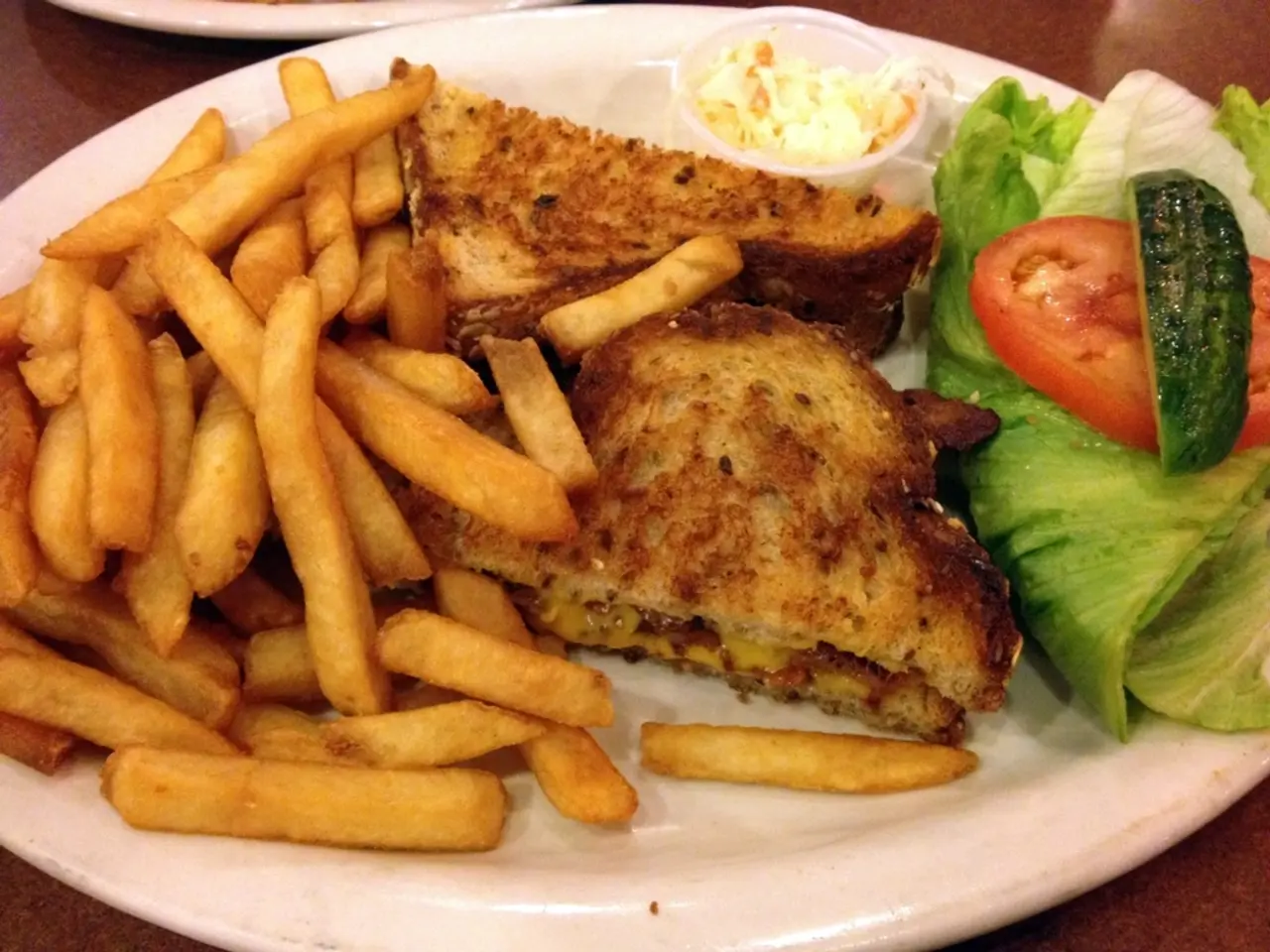One in every eight individuals in NRW struggles to afford a complete meal.
In North Rhine-Westphalia, the largest state in Germany, the proportion of people who cannot afford a balanced meal at least every two days has decreased for the first time since 2021. However, the number of affected individuals remains above the 2021 level, with more than two million people still struggling, according to the Statistical Office of North Rhine-Westphalia (IT.NRW).
A balanced meal, as defined by IT.NRW, includes meat, poultry, or fish, or a corresponding vegetarian meal. The decrease in the proportion of people who cannot afford a balanced meal may be due to factors such as economic recovery or changes in food prices, but the number of affected individuals remains high.
The increase in food prices had intensified significantly with the start of the Russian invasion of Ukraine in February 2022. Food prices in North Rhine-Westphalia increased by 14.6 percent and 13 percent in 2022 and 2023, respectively. These increases were driven primarily by soaring producer prices, energy cost spikes, and supply chain issues affecting food production and distribution.
However, the situation began to improve in 2024. Food prices and producer prices began to decrease, as evidenced by the substantial drop in producer prices by 9.2% in September 2023 and ongoing downward trends in wholesale prices and inflation rates into 2025. This easing has continued with inflation in North Rhine-Westphalia holding steady at a low 1.8% in mid-2025, reflecting a normalization of cost pressures, stabilization of energy prices, and improvements in supply chains.
Despite the improvement, food affordability remains a significant concern in North Rhine-Westphalia. Around 1.41 million people in the state were affected by significant material and social deprivation last year, which includes the inability to afford holidays, leisure activities, new clothing, or even food.
The assessment of whether one can afford a balanced meal may be influenced by the development of food prices, according to IT.NRW. As such, continued monitoring of food prices and the economic situation is crucial to understanding and addressing food affordability issues in North Rhine-Westphalia.
1) Despite the recent decrease in the proportion of people who cannot afford a balanced meal, as food prices in North Rhine-Westphalia are still 14.6% higher than before the Russian invasion of Ukraine in 2022, many continue to struggle with personal-finance issues related to food-and-drink expenses.
2) The improved financial situation in North Rhine-Westphalia, as reflected by the decreased food prices and inflation rates, has failed to positively affect the lifestyle of many residents, as more than 1.41 million individuals still face significant material and social deprivation, including the inability to afford food-and-drink resources necessary for a balanced meal.




